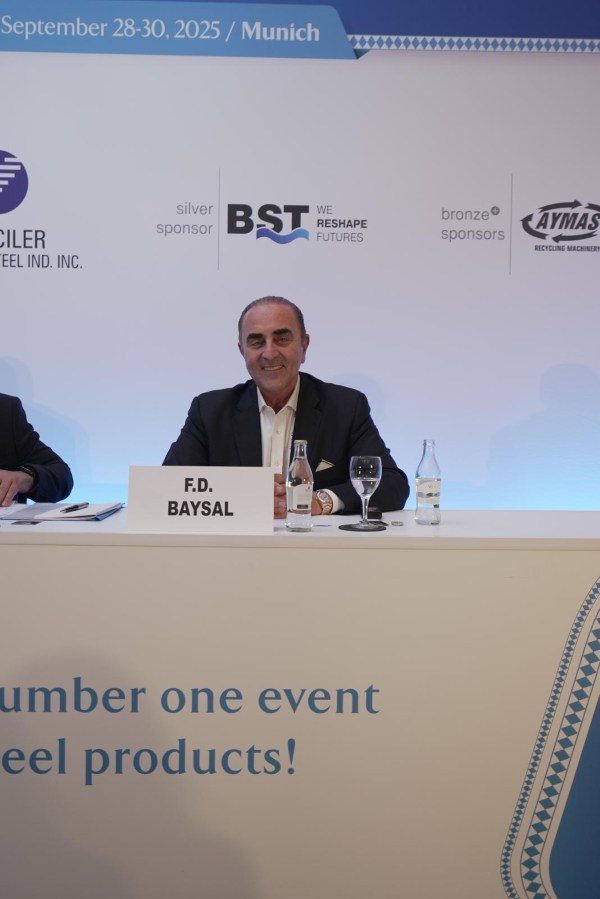Speaking during the panel session on the last day of the SteelOrbis 2025 Fall Conference & 93rd IREPAS Meeting held in Munich on September 28-30, F.D. Baysal from Seba International, the chairman of the traders committee, summarized the committee’s findings regarding the general situation in the steel market and addressed several questions regarding global trade and cost structures.

Reporting that both steel production and exports from China have increased since 2023, Mr. Baysal noted that the country’s exports increased at a much higher pace than its production. He stated that there are no expectations for production cuts in China and that its domestic stock levels remain at normal levels. In response to questions on how China is reacting to trade barriers, he explained that Chinese producers have begun investing in production facilities in other regions, including Africa and South America.
Looking at Turkey, Mr. Baysal said that the high cost of energy remains a key challenge for Turkish mills. He noted that, in order to save energy and comply with CBAM regulations, Turkish producers have started investing in solar and renewable energy sources, which are expected to reduce production costs. Meanwhile, saying that there are no clear plans in the EU to ease green transition requirements, though delays remain a possibility, he commented that CBAM will eventually be enforced, but significant work is still needed to establish reference levels for both European and overseas mills. He added that, despite uncertainties, European producers are already moving from blast furnaces to EAFs and investing in renewable energy sources such as solar to balance costs and meet future carbon requirements.
Commenting on protectionist measures, the committee chairman stated that the Trump administration’s tariffs, reaching 75-100 percent in some cases, have nearly halted steel imports into the US, while Canada and Mexico have also imposed strong protective measures, leaving the North American market heavily restricted. Stating that he believes that protectionist measures will continue for the foreseeable future, Baysal said that further barriers against cheaper Asian steel are likely, but stressed that free trade remains the best option, though current trends are moving in the opposite direction.
Regarding prices, he highlighted that the current spread between rebar and scrap prices stands at around $200 or slightly less. He suggested that this points to a likely regression in scrap prices. He also compared production methods, stating that blast furnaces currently hold a cost advantage of about $25/mt over electric arc furnaces as the latter depend on electricity prices, though these are lower in countries like the US. On freight, Baysal noted that container freight rates have come down from post-Covid highs of around $4,000 to about $1,200, adding that he does not expect them to fall further.